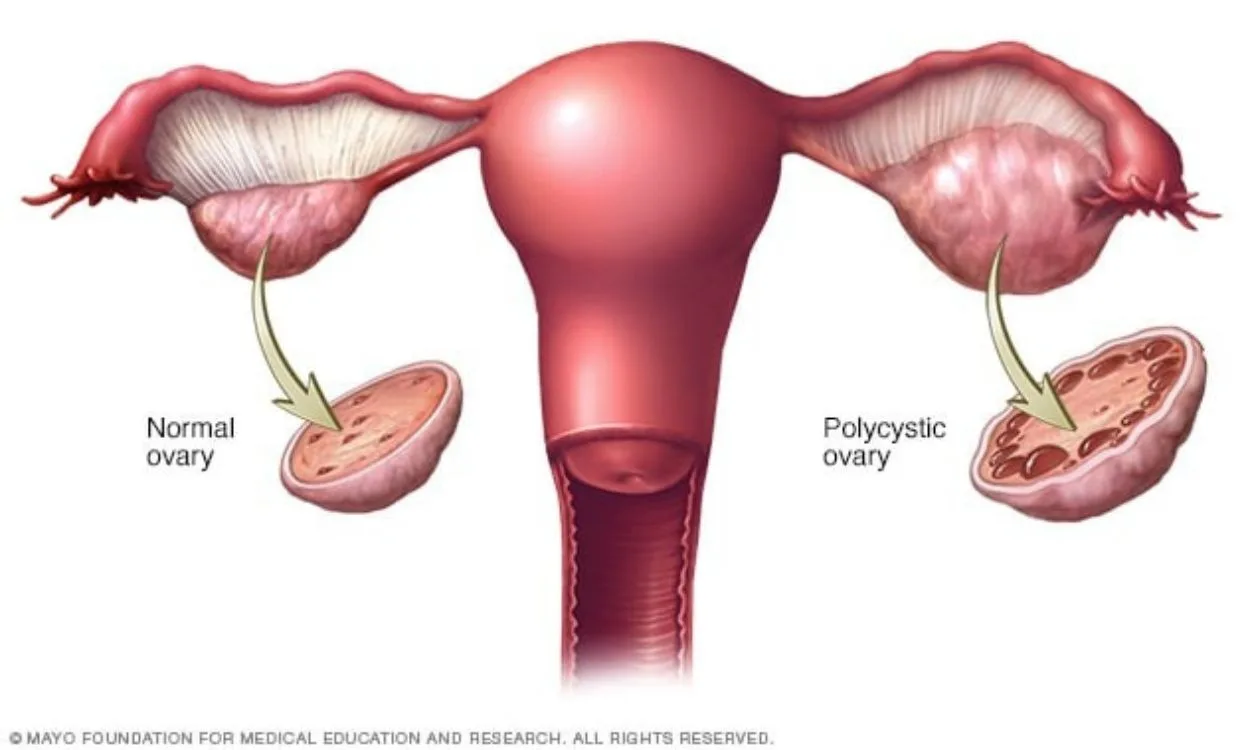How PCOD Impacts Reproductive Hormone Levels
Polycystic Ovary Syndrome (PCOS) is a common hormonal disorder affecting women of reproductive age. It is characterized by the presence of cysts on the ovaries, irregular menstrual cycles, and elevated levels of androgens (male hormones) in the body. PCOS can have a significant impact on reproductive hormone levels, leading to a range of symptoms and potential complications.
1. Understanding PCOD and Reproductive Hormones
- PCOS disrupts the normal balance of reproductive hormones, including estrogen, progesterone, and testosterone. The condition is closely linked to insulin resistance, which can lead to increased production of androgens by the ovaries. Elevated levels of androgens can disrupt the regularity of the menstrual cycle and contribute to the development of cysts on the ovaries.
2. Impact on Estrogen and Progesterone
- PCOS can lead to an imbalance in estrogen and progesterone levels, affecting the regulation of the menstrual cycle. Irregular or absent periods are common in women with PCOS, which can impact fertility and overall reproductive health. Additionally, imbalances in estrogen and progesterone may contribute to symptoms such as acne, hair thinning, and weight gain.
3. Influence on Testosterone
- Elevated levels of testosterone, a male hormone, can lead to hirsutism (excessive hair growth), acne, and male-pattern baldness in women with PCOS. These symptoms are often distressing and can have a significant impact on self-esteem and quality of life. Furthermore, high levels of testosterone can interfere with normal ovulation, leading to infertility or difficulty conceiving.
Managing PCOD and Reproductive Hormones
1. Lifestyle Modifications
- Maintaining a healthy weight through a balanced diet and regular exercise is crucial for managing PCOS and reproductive hormone levels. Weight management can help improve insulin sensitivity, reduce androgen levels, and restore menstrual regularity. Dietary changes, such as reducing refined carbohydrates and increasing fiber intake, can also support hormone balance.
2. Medications and Hormonal Therapy
- In some cases, healthcare providers may prescribe medications to address specific symptoms of PCOS. Hormonal contraceptives, such as birth control pills, can help regulate menstrual cycles and reduce androgen levels. Anti-androgen medications may be recommended to manage symptoms like hirsutism and acne. Additionally, insulin-sensitizing drugs can be used to improve metabolic function.
3. Fertility Treatment
- For women with PCOS who are trying to conceive, fertility treatments such as ovulation induction or in vitro fertilization (IVF) may be recommended. These interventions aim to support ovulation and increase the chances of successful pregnancy. Close monitoring by healthcare professionals is essential to optimize fertility outcomes while managing hormonal imbalances.
Introducing Fitpaa: Personalized Support for PCOS Management
While managing PCOS and its impact on reproductive hormone levels can be challenging, innovative digital solutions like Fitpaa offer personalized support to individuals dealing with this condition. Fitpaa provides a comprehensive approach to health and wellness, integrating medical nutrition therapy, exercise therapy, and cognitive behavior therapy to optimize metabolism and achieve health goals.
1. Fitpaa’s Approach to PCOS Management
- Fitpaa’s AI-driven technology assesses the individual’s metabolism and tailors a personalized plan to address the specific needs associated with PCOS. By incorporating lifestyle modifications, nutritional guidance, and fitness plans, Fitpaa aims to support hormone balance, weight management, and overall well-being for individuals with PCOS.
2. Real-time Guidance and Support
- Fitpaa’s mobile app offers real-time guidance and support, empowering users to follow their personalized plans with precision. From tracking nutrition and exercise to receiving timely nudges and motivational support, Fitpaa’s digital therapeutic solution integrates cognitive behavioral therapy principles to promote sustainable lifestyle changes.
3. Commitment to Guaranteed Results
- Fitpaa’s goal-oriented services come with a commitment to achieving health and fitness goals with a 100% guarantee. By leveraging advanced technology and a dedicated team of experts, Fitpaa strives to make meaningful impacts on the lives of individuals dealing with PCOS, helping them achieve their desired health outcomes.
Embracing a Holistic Approach to Health
- In conclusion, PCOS can significantly impact reproductive hormone levels, leading to a range of symptoms and challenges for affected individuals. However, with the right support and resources, managing PCOS and optimizing hormone balance is achievable. Fitpaa’s innovative approach to personalized health and wellness offers a promising avenue for individuals with PCOS to embark on a holistic journey towards improved reproductive health and overall well-being.
- If you’re ready to take control of your health and wellness, download the Fitpaa app today and embark on a transformative journey towards achieving your health and fitness goals with guaranteed results. With Fitpaa, you’ll gain access to a dedicated team of professionals, personalized support, and a comprehensive approach to managing PCOS and optimizing reproductive hormone levels. It’s time to prioritize your well-being and embrace a healthier, happier lifestyle.









